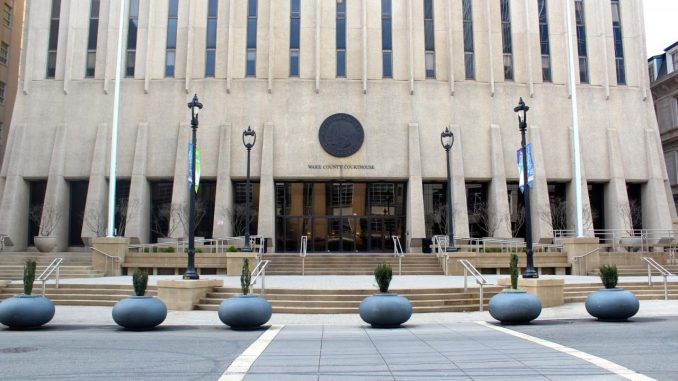
RALEIGH — A state law that allows four Charlotte-area municipalities to operate charter schools was challenged in North Carolina court on last week, alleging they would exacerbate racial segregation if allowed to open.
The North Carolina and Charlotte-Mecklenburg NAACP chapters and two parents filed the lawsuit against the state and Republican legislative leaders, saying the 2018 law violates the state constitution.
The plaintiffs argue the law, which granted the option to Matthews, Mint Hill, Huntersville and Cornelius, essentially creates new town school districts that siphon state funds from the broader Charlotte-Mecklenburg school system. The system, currently the state’s second largest by enrollment with 148,000 students, was the subject of a landmark 1971 U.S. Supreme Court ruling upholding busing to address segregation.
The municipalities, which are predominantly white, will siphon students away, leaving the traditional Charlotte-Mecklenburg system with a greater proportions of nonwhite, low-income students, according to the lawsuit filed in Wake County Superior Court. The system’s student population in 2018 was 38% black, 28% white and 24% Hispanic, the lawsuit says.
Elected officials in the towns have said the new authority had nothing to do with race, but rather as a way to address overcrowded public schools in their area. The towns had been at odds with the Charlotte-Mecklenburg school board, arguing it wasn’t willing to construct enough new schools in their areas despite negotiations.
None of the towns currently operate a charter school, which would have to follow the same state process as other charter applicants. But the schools could give enrollment preferences to students living in their towns. Other charter schools can’t do that. A Huntersville commission studying the issue recommended in 2019 that the town open a charter school in the next three to four years, the lawsuit said.
The law approved wasn’t subject to Democratic Gov. Roy Cooper’s veto because it was a local bill. But when vetoing a related bill in December 2018, Cooper said “municipal charter schools set a dangerous precedent that could lead to taxpayer funded resegregation.”
In the late 1990s, a federal judge lifted the mandatory busing order in Charlotte-Mecklenburg that had been upheld by the Supreme Court in 1971. A “neighborhood” school assignment policy followed that the plaintiffs say led to “dramatic resegregation.”
The lawsuit, filed with the assistance of the Lawyers’ Committee for Civil Rights Under Law, says the municipal law violates clauses in the state constitution prohibiting local bills redrawing school district lines and requiring equal opportunities for all students and equal protection under the law.



